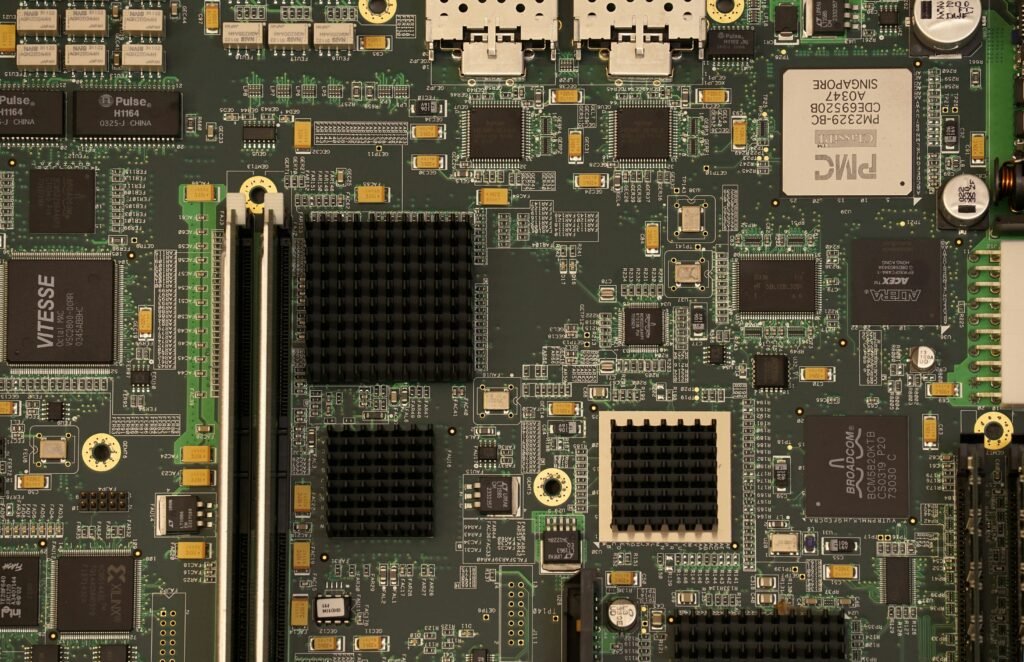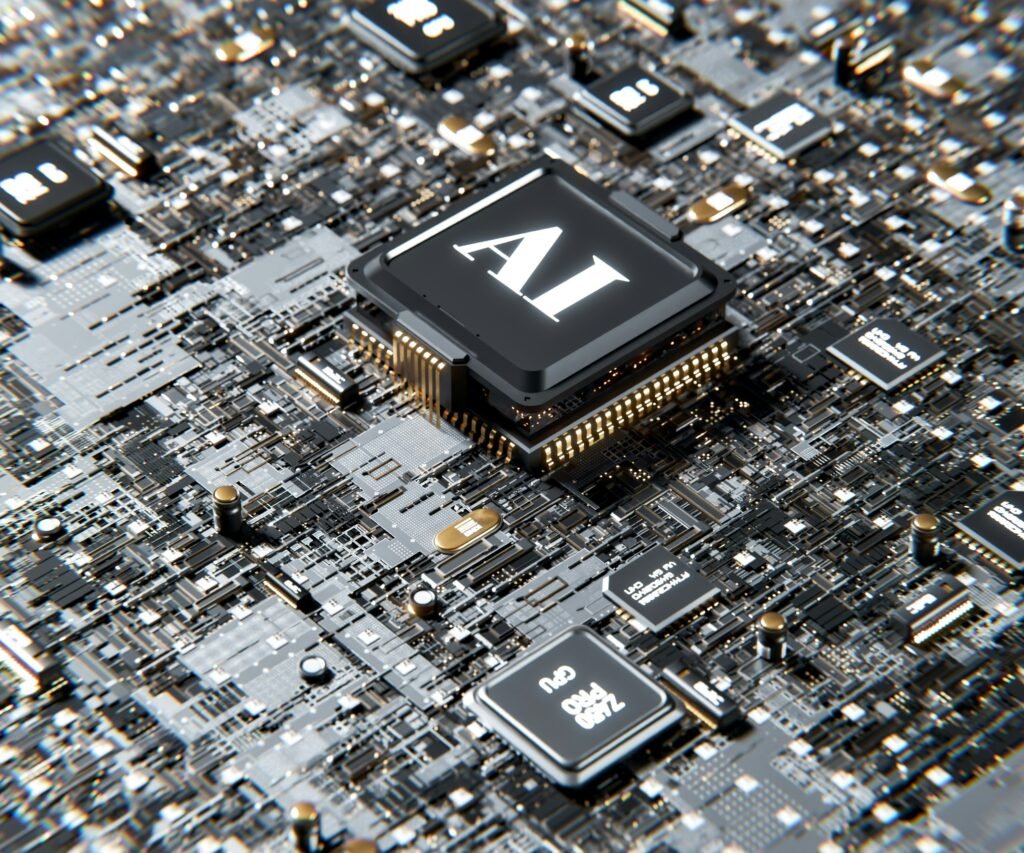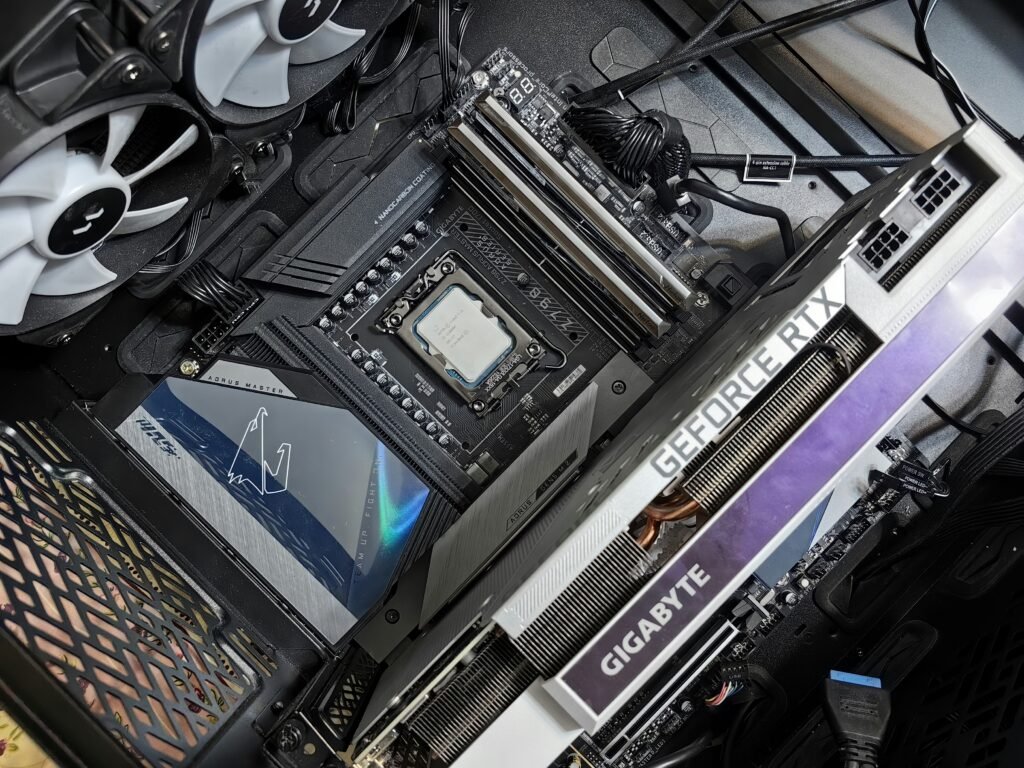You’re in the market for a new laptop, but with so many choices available, it can be overwhelming to figure out which laptop processor type is right for you. That’s where this comprehensive guide comes in. Whether you’re a tech enthusiast or a casual user, this article breaks down the different laptop processor types in a friendly and approachable manner, helping you make an informed decision. From Intel Core i7 to AMD Ryzen, we’ll explore the pros and cons of each processor type, discussing their performance, power consumption, and overall value for money. So sit back, relax, and let’s dive into the world of laptop processors together!

This image is property of images.unsplash.com.
1. Introduction to Laptop Processors
1.1 What is a Processor?
A laptop processor, often referred to as a central processing unit (CPU), is the brain of your laptop. It is responsible for executing tasks and instructions, making it a crucial component in the overall performance of your device. The processor’s speed and capabilities can significantly impact the speed, efficiency, and overall user experience of your laptop.
1.2 Importance of Choosing the Right Processor
Choosing the right processor for your laptop is essential as it directly affects the speed and performance of your device. A powerful processor can handle demanding tasks such as gaming, video editing, and multitasking with ease, while a weaker processor may struggle and result in slow performance and lag. Understanding the different types of laptop processors available on the market will help you make an informed decision when purchasing a new laptop or upgrading your existing one.
2. Types of Laptop Processors
There are several types of laptop processors available, each offering different levels of performance and capabilities. The three main types of laptop processors are Intel processors, AMD processors, and ARM processors.
2.1 Intel Processors
Intel processors are widely recognized and have a long-standing reputation for their high performance, power efficiency, and compatibility with a wide range of applications. They are commonly found in laptops across various price ranges and cater to different user requirements.
2.2 AMD Processors
AMD processors, also known as Advanced Micro Devices processors, are an alternative to Intel processors. They have gained popularity in recent years due to their competitive performance and affordability. AMD processors are often favored by gamers and users seeking a cost-effective solution without compromising on performance.
2.3 ARM Processors
ARM processors are a type of processor commonly used in smartphones and tablets. However, they are making their way into the laptop market due to their power efficiency and extended battery life. ARM processors are suitable for users who prioritize portability and day-to-day tasks over demanding applications.
3. Intel Processors
Intel offers a range of processors designed for laptops, each with varying capabilities and performance levels. Here are some of the most popular Intel processors:
3.1 Core i3
The Core i3 processors are entry-level processors suitable for everyday tasks such as web browsing, word processing, and basic multimedia consumption. They offer decent performance at an affordable price point and are ideal for casual users who don’t require extensive computational power.
3.2 Core i5
The Core i5 processors strike a balance between performance and affordability. Suitable for both everyday tasks and light gaming, Core i5 processors offer faster processing speeds and improved multitasking capabilities compared to Core i3 processors.
3.3 Core i7
Core i7 processors are high-performance processors designed for demanding tasks such as video editing, graphic design, and gaming. With higher clock speeds and more cores, Core i7 processors can handle intensive applications and multitasking with ease. They are an excellent choice for power users and professionals who require superior performance.
3.4 Core i9
Core i9 processors are Intel’s most powerful processors, offering maximum performance for demanding tasks and heavy workloads. These processors are designed for professionals, content creators, and gamers who require unparalleled processing power, speed, and efficiency.
4. AMD Processors
AMD processors have gained considerable popularity in recent years due to their competitive performance and value for money. Here are some of the popular AMD processors available for laptops:
4.1 Ryzen 3
Ryzen 3 processors are entry-level processors that offer excellent value for budget-conscious users. With decent processing power and respectable integrated graphics, Ryzen 3 processors can handle everyday tasks and light gaming.
4.2 Ryzen 5
Ryzen 5 processors are mid-range processors that provide a significant increase in performance compared to Ryzen 3 processors. These processors are suitable for multitasking, productivity tasks, and moderate gaming. They offer a great balance between price and performance.
4.3 Ryzen 7
Ryzen 7 processors are high-performance processors designed for intensive tasks. With more cores and higher clock speeds, Ryzen 7 processors excel in demanding applications such as video editing, content creation, and gaming. They offer exceptional multitasking capabilities and are favored by professionals.
4.4 Ryzen 9
Ryzen 9 processors are AMD’s flagship processors, offering top-of-the-line performance and power. Designed for professionals and enthusiasts, Ryzen 9 processors deliver unparalleled processing power and speed for demanding tasks such as 3D rendering, video editing, and gaming.

This image is property of images.unsplash.com.
5. ARM Processors
ARM processors, commonly found in smartphones and tablets, are becoming more prevalent in laptops due to their power efficiency and extended battery life. Here are some key points about ARM processors in laptops:
5.1 Advantages of ARM Processors
ARM processors offer excellent power efficiency, allowing laptops to have longer battery life compared to laptops with Intel or AMD processors. They generate less heat, resulting in quieter laptops and reduced need for cooling fans. Additionally, ARM processors often have integrated graphics capabilities, allowing them to handle multimedia and everyday tasks efficiently.
5.2 ARM Cortex-A Series
The ARM Cortex-A series processors are designed for laptops, providing a balance between performance and power efficiency. These processors are suitable for everyday tasks, web browsing, multimedia consumption, and lightweight applications. They offer a good solution for users who prioritize portability and battery life.
5.3 Qualcomm Snapdragon Processors
Qualcomm Snapdragon processors, based on ARM architecture, are commonly found in laptops running Windows 10 on ARM. These processors offer the benefits of ARM architecture, such as power efficiency and extended battery life. They are suitable for users who require a lightweight and always-connected laptop for tasks like web browsing, email, and productivity applications.
6. Factors to Consider when Choosing a Laptop Processor
When choosing a laptop processor, there are several factors to consider that will determine the processor’s suitability for your needs. These factors include performance, power efficiency, graphics capabilities, and price.
6.1 Performance
Consider the type of tasks you will be performing on your laptop. If you require processing power for demanding applications like video editing, gaming, or 3D rendering, you will need a high-performance processor such as Intel’s Core i7 or AMD’s Ryzen 7. For everyday tasks and light gaming, mid-range processors like Intel’s Core i5 or AMD’s Ryzen 5 would be sufficient.
6.2 Power Efficiency
If portability and battery life are important to you, consider processors that offer excellent power efficiency, such as ARM processors or certain Intel and AMD processors designed for low power consumption. These processors will allow you to use your laptop for longer periods without needing to be plugged in.
6.3 Graphics Capabilities
If you work with graphics-intensive applications, such as 3D modeling, video editing, or gaming, it is important to consider the graphics capabilities of the processor. Some processors have integrated graphics, while others may require a dedicated graphics card. Make sure the processor you choose meets your graphics requirements or can support a separate graphics card if needed.
6.4 Price
Lastly, consider your budget. Processors vary in price based on their performance and capabilities. Determine a budget range and look for processors within that range that meet your requirements. It is important to strike a balance between performance and cost, ensuring you get the best value for your money.

This image is property of images.unsplash.com.
7. Which Processor is Right for You?
Choosing the right processor ultimately depends on your specific needs and use cases. Here are some recommendations for different usage scenarios:
7.1 Everyday Use
For everyday tasks such as web browsing, word processing, and multimedia consumption, entry-level processors like Intel’s Core i3 or AMD’s Ryzen 3 will suffice. These processors offer sufficient performance for day-to-day activities without breaking the bank.
7.2 Gaming
If gaming is a priority, look for processors with strong single-core performance and good integrated or dedicated graphics capabilities. Intel’s Core i5 or i7 processors, as well as AMD’s Ryzen 5 or Ryzen 7 processors, are suitable for gaming. Pair them with a capable graphics card for optimal gaming performance.
7.3 Content Creation
For content creation tasks that involve video editing, graphic design, or 3D rendering, you will need a powerful processor. Intel’s Core i7 or Core i9 processors, as well as AMD’s Ryzen 7 or Ryzen 9 processors, are recommended for content creators, as they offer the necessary horsepower to handle complex tasks efficiently.
7.4 Business and Productivity
If your laptop usage revolves around business and productivity applications, consider processors that offer a good balance between performance and power efficiency. Intel’s Core i5 or AMD’s Ryzen 5 processors are suitable for most business and productivity needs, providing sufficient processing power while ensuring long battery life.
8. Upgrading Laptop Processors
If you already own a laptop and wish to upgrade the processor for improved performance, there are a few things to consider:
8.1 Compatibility
Not all laptops allow for processor upgrades, so it is important to verify the compatibility of your laptop model with the desired processor. Check the laptop manufacturer’s website or consult with a computer technician to ensure compatibility.
8.2 Steps to Upgrade
Upgrading a laptop processor is not as straightforward as upgrading a desktop processor. It often involves disassembling the laptop, removing the old processor, applying new thermal paste, and installing the new processor. It is recommended to seek professional assistance unless you are experienced in laptop repair and upgrading.
8.3 Considerations before Upgrading
Before upgrading the processor, consider the potential benefits and costs. Evaluate if the upgrade will provide a significant improvement in performance for your specific needs. Additionally, consider the cost of the new processor and any additional parts or services required for the upgrade. In some cases, it may be more cost-effective to invest in a new laptop with a better processor.
9. Processor Benchmarking
Benchmarking is the process of evaluating the performance of a processor by running standardized tests and comparing the results to other processors. Here are some important points about processor benchmarking:
9.1 Importance of Benchmarking
Benchmarking allows you to objectively compare and evaluate the performance of different processors. It provides insights into the capabilities and limitations of a processor, helping you make an informed decision when selecting a laptop or upgrading a processor.
9.2 Popular Benchmarking Tools
Several benchmarking tools are available to assess processor performance. Some popular benchmarking tools include Geekbench, Cinebench, PassMark, and 3DMark. These tools provide standardized tests for measuring processor speed, multitasking capabilities, graphics performance, and more.
9.3 Interpreting Benchmark Scores
When interpreting benchmark scores, higher scores generally indicate better performance. However, it is important to consider specific requirements and use cases. A processor with a high gaming benchmark score may not necessarily perform well in content creation tasks. Therefore, it is crucial to identify benchmarks that align with your specific needs and compare scores accordingly.
10. Conclusion
In conclusion, selecting the right laptop processor is crucial for achieving optimal performance and meeting your specific computing needs. Understanding the different types of processors available, such as Intel, AMD, and ARM, as well as their respective models and capabilities, is essential for making an informed decision. Consider factors such as performance, power efficiency, graphics capabilities, and price when choosing a processor that best suits your requirements. Proper consideration and benchmarking will help ensure that you have a laptop with a processor that can handle your tasks efficiently and provide a seamless user experience.
